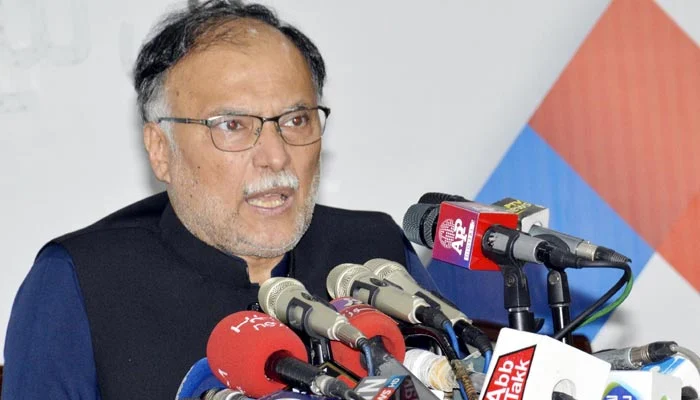ISLAMABAD, Nov 16 (ABC): Minister for Planning, Development, and Special Initiatives Ahsan Iqbal Wednesday said that in the wake of the growing impacts of climate change, Pakistan’s biggest challenge was to adapt the agriculture sector to climate change to ensure food security and boost the country’s economic growth.
“We can build the infrastructures and dams with such specifications that can withstand the floods and heavy rainfalls but the most challenging task for my country is to adapt our agriculture economy to climate change because it is going to affect our productivity negatively, as all seeds and all practices are not aligned with new challenges”, he said while giving a presentation on Pakistan Floods 2022, Resilient Recovery, Rehabilitation, and Reconstruction Strategy at Pakistan Pavilion in Sharm El-Sheikh International Convention Centre during COP27.
The minister said the government would try to develop research-based seeds and practices that could withstand extreme weather conditions such as extreme heat, cold, or rainfalls, according to a message received here on Wednesday. Similarly, he said the government would mobilize all the resources within the government departments to work together to bring resilience to communities and governance structures.
The minister added that climate change was no more a fiction but a reality for millions of people around the world including Pakistan which had recently been directly hit by the worst climate disaster and also for the 220 million population that was indirectly affected by the climate disaster. Prior to this devastation, we had an unprecedented heat wave with the projection that we might face drought but we faced heavy downpours of 600 to 900 percent more rains in those areas where normally there are very low or moderate rains, Ahsan Iqbal said adding that the worst part of this tragedy was that the worst devastation came in those districts of the country which were already the poorest districts as per the UNDP poverty index that turned into the worst human tragedy.
After the floods, the minister informed that Pakistan’s National Flood Response and Coordination Center with the help of other local and international development partners, held a post floods damage assessment, according to which $14.9 billion damage was done directly while another $15.2 billion damage was done to infrastructure productive sector, food livestock, water resources irrigation, commercial, industry, and finance sectors. In Balochistan, he said, all dams that were built over the last 20 years were washed away due to floods while in Sindh, a large number of people are still displaced due to floods.
He informed that during the recent flooding, 33 million people had been affected, 8 million people have been displaced, and 1,729 people lost their lives out of which one-third were children. He said the unprecedented recovery and reconstruction needs were projected at 1.6 times the budgeted national development expenditures for FY23. The flood caused significant losses in GDP, as a direct impact of the floods is projected to be around 2.2% of GDP in FY 22 with agriculture accounting for the largest decline of 0.9% of GDP. Ahsan Iqbal said extreme damages to agriculture, industry, and services sectors are estimated to be equivalent to around 4.8% of FY22 GDP. Due to the floods, around 9 million people were pushed into poverty, 7.8 million people were facing food insecurity and 4.3 million lost their jobs.

